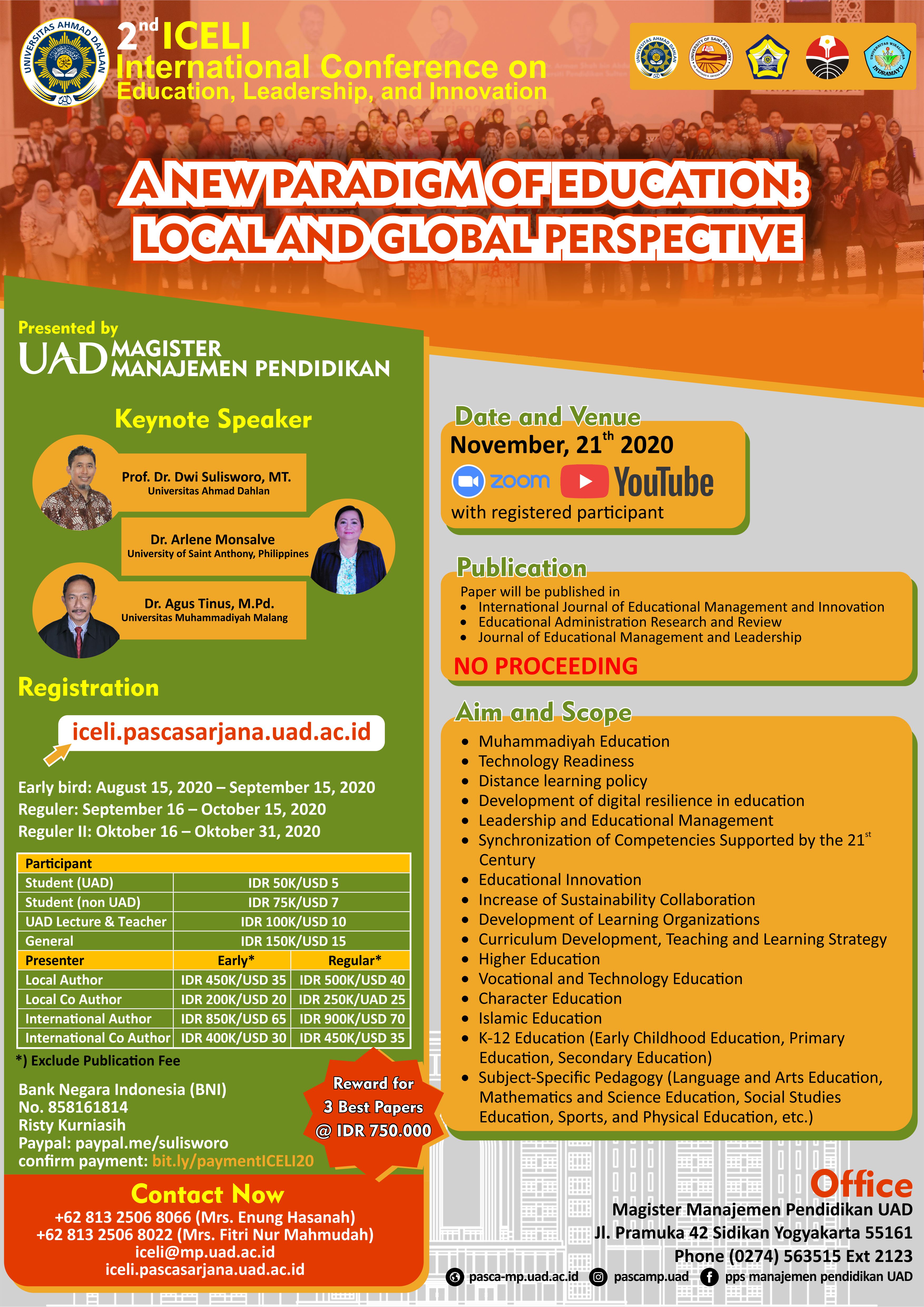- Focus and Scope
- Section Policies
- Peer Review Process
- Publication Frequency
- Open Access Policy
- Archiving
Focus and Scope
2nd ICELI 2020 invites academicians, professinals, and independent researchers in various educational fields to present their research abstract and papers relevant to the theme of this conference. The sub themes for presentation include, but not limited to:
- Muhammadiyah Educational
- Technology Readiness
- Distance learning policy
- Development of digital resilience in education
- Leadership and Educational Management
- Synchronization of Competencies Supported by the 21st Century
- Educational Innovation
- Increase of Sustainability Collaboration
- Development of Learning Organizations
- Curriculum Development, Teaching and Learning Strategy
- Higher Education
- Vocational and Technology Education
- Character Education
- Islamic Education
- K-12 Education (Early Childhood Education, Primary Education, Secondary Education)
- Subject-Specific Pedagogy (Language and Arts Education, Mathematics and Science Education, Social Studies Education, Sports, and Physical Education, etc.)
Section Policies
Articles
Peer Review Process
Each article will be reviewed by at least two people reviewers in accordance with its scope of the journal. the review process conducted by the Blind Preview Process.
The time is given for the review process in two weeks starting from article submitted to the reviewer. the editorial team will determine the article is accepted or not based on the result of a review of the reviewer.
for writers who want to submit the manuscript publication is expected to pay attention to the following rules:
1. The article is not a plagiarism of other people's work.
2. article sent has never published and not under consideration
Publication Frequency
Proceeding of ICELI published one a years
Open Access Policy
This proceeding provides immediate open access to its content on the principle that making research freely available to the public supports a greater global exchange of knowledge.
Archiving
This journal utilizes the LOCKSS system to create a distributed archiving system among participating libraries and permits those libraries to create permanent archives of the journal for purposes of preservation and restoration. More...

